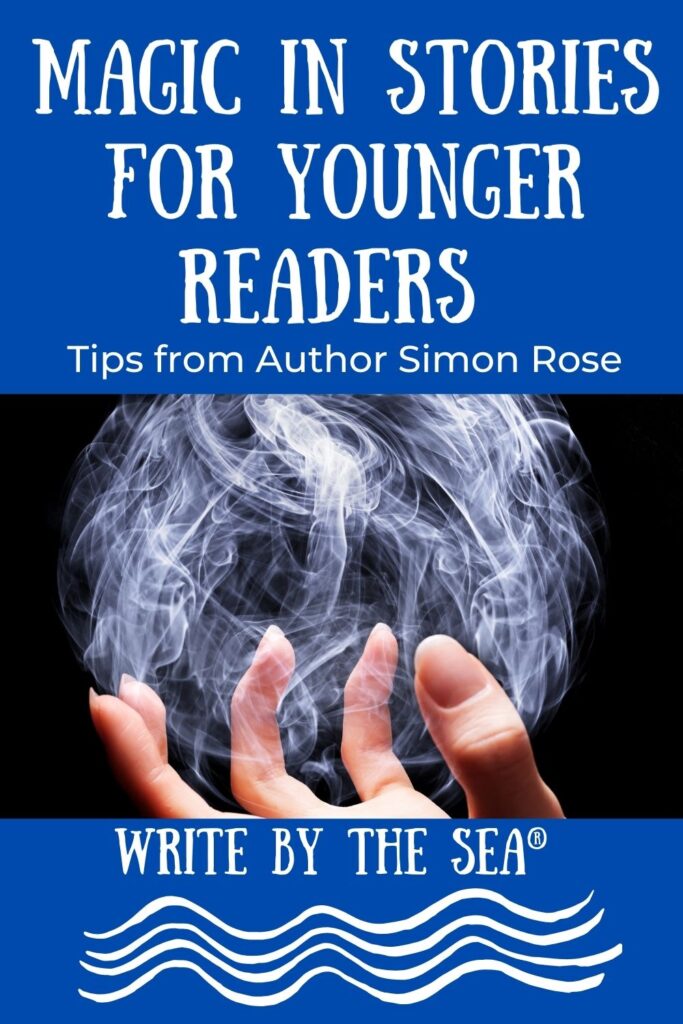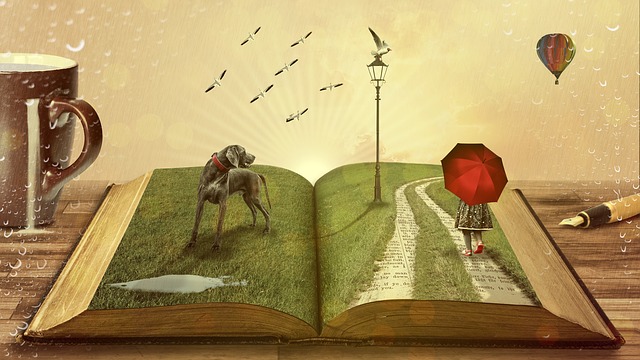by Simon Rose, Contributing Editor (this post is an excerpt from Simon’s book The Children’s Writer’s Guide)

Magic plays a big part in children’s lives as they grow up.
Santa Claus is a very familiar figure to millions of children, along with all the magical things associated with Christmas.
This magic is something many children are sure is real, for a while at least.
The tooth fairy is also an ever-present character in the lives of kids when they are younger.
Many may even be afraid of the dark and fearful of the supposed creatures that may lurk there, including ghosts.
They may be reassured repeatedly that ghosts don’t exist but are never entirely convinced and in a strange way, it is somehow much more terrifying to be scared of something you know isn’t real.
After all, if it can’t be defeated, how can you ever win?
Magic appears in so many of the stories that children avidly consume as they grow up.
Indeed, the process of reading is itself a kind of magical experience, as children begin their own personal journey of discovery.
As I often point out to children during my school visits and workshops, books can be time machines, spaceships that whisk you off to another planet, or become doorways to other dimensions, all powered by your own limitless imagination.
Magic and Reality
In stories for children, it is the boy or girl who solves the problem, rather than the adult.
Children find this much easier to relate to.
Harry Potter is just like his young readers, an ordinary child with admittedly extraordinary powers.
Even those of his friends who come from magical families have the same things to deal with such as homework, embarrassing parents, or annoying siblings, making it more believable and thus rooted in the real world, despite Harry’s enrolment in a school for wizardry.
Harry even has trouble becoming a wizard and struggles at school with some subjects, while his classmate Hermione is always ahead of him.
On more than one occasion, Harry curses himself for not having studied the history of the magical world more deeply.
In the earlier novels, Harry is quite simply not good enough to take on more powerful wizards.
Much of the strength of the novels is the journey of Harry from eleven years old to manhood and his learning curve along the way, which is reflected not just in his relationships with his friends and teachers but also in his growing comprehension of the laws of magic.
Although magic is the predominant theme running through these and other novels, the hero still has to overcome his difficulties through his own efforts.
Magic should never be used simply as a way to solve all problems or just wish them away.

Learn more about The Children’s Writer’s Guide and all Simon’s other books on his website at https://simon-rose.com/. Simon also offers a variety of coaching services for writers and his Writing for Children and Young Adults online course.
Note: Posts and pages on this site may contain some affiliate links for your convenience (which means if you make a purchase after clicking a link I will earn a small commission but it won’t cost you a penny more)! Read my full disclosure and privacy policies…



